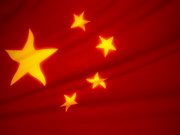Shenzhen – Between baskets filled with hard drives, memory sticks, LED lights and countless other bits of technology hardware, Jason Gui found what he was looking for: a handful of tiny batteries.
His business partner, Tiantian Zhang, whipped out her phone to pay for them via WeChat, the all-in-one messaging and payments app ubiquitous in China, and transferred about 4 yuan, or $0.60, for each battery.
The bustling wholesale market with its rows of vendors is part of Huaqiangbei, a subdistrict in the Chinese city of Shenzhen that has become known as the “Silicon Valley of hardware.”
For Gui, it’s better than that.
Silicon Valley was “a little bit slow for us,” Gui said over his workstation at Hax, a startup incubator in Shenzhen. “If you were to do this in the U.S., you would just be importing the same materials from China anyway.”
Gui, 28, and Zhang, 30, are known as “haigui,” or sea turtles, a term for foreign-educated Chinese people who have returned to China.
About 80 percent of Chinese students who get degrees abroad now go back — up from about 33 percent in 2007, according to China’s Ministry of Education. Some 15 percent take jobs in China’s booming tech sector.
That has implications for the United States, with experts worrying that as China turns more attractive for talent, the U.S. will lose out.
“If there are talented people who would be willing to stay, we need to keep them,” said James Lewis of the Center for Strategic and International Studies, a Washington think tank.
Lewis added that uncertainty over immigration has made that harder, just as China “has put a huge effort into enticing these students back.”
Gui and Zhang returned to China to start their company, Vue, after graduating from the University of Pennsylvania in 2013. Along with an American co-founder, Aaron Rowley, they make smart glasses that track wearers’ activities and connect to their smartphones to play music and accept calls. Cheap and ample products make it possible for them to iterate quickly, turning a prototype into a finished product in a matter of days.
Gui and Zhang initially moved to San Francisco after graduation. But they accomplished less in a year there than they did in a three-month trip to Shenzhen.
Gui’s and Zhang’s office sits just upstairs from the sprawling market, and their factory is an hour’s drive away. That proximity has saved them time and money, and the pace is faster in Shenzhen, Gui said.
“People work really hard until really late,” he said.
China’s tech sector has its own shorthand to describe the hours that employees work in the country: “9-9-6,” meaning from 9 a.m. to 9 p.m., six days a week.
“Our factories are still talking to us at 10 p.m. or 11 p.m., sometimes well into midnight. They’re working on weekends, so things get done much faster,” Gui said. “Whereas back in San Francisco, after 5 p.m. people won’t respond to your emails and you can’t get anything done until the next day.”
China’s startup scene also offers entrepreneurs the chance to do more with their funding, thanks to lower resources and labor costs.
Wang Meng Qiu, a startup founder who graduated from Stanford University with a doctorate in computer science, held jobs at Facebook and Twitter in Silicon Valley before he moved to the outskirts of Shanghai to launch his own drone company, Zero Zero Robotics.
Wang said the salaries of his 40-person team for two years cost $700,000.
“You can’t do that in the Valley,” he said.
The pay discrepancy between Silicon Valley and China has narrowed since he launched in 2014, especially at top-tier firms. Wang’s engineers now make 70 percent to 80 percent of what they could get in America.
That has helped him poach other U.S.-educated engineers. A decade ago, if you were a computer science whiz, “the only place you could make a good buck was in the U.S.,” Wang said. “But now Chinese companies are making comparative or even more attractive offers than those in America.”
If he had wanted to pursue a career in academia, Wang said he would have stayed in America. But to build products and achieve commercial success, China’s know-how, available capital and massive consumer base won out.
“We’re not as fast in fundamental research or core innovations. But in the area of technology application, I think we’re actually leading the world,” he said, referring to Chinese advances in e-commerce, messaging and mobile payments.
A similar rationale guided Wang Yi, who graduated from Princeton University with a doctorate in computer science in 2009. After a stint at Google in San Francisco, he got the itch to build his own software product: an app for language learners that offers personalized instruction.
Wang said he wanted a “huge market” and proven user demand. China fit the bill — its middle class is expected to reach 550 million by 2022, according to consulting company McKinsey. The share of per-capita education spending among Chinese 20-year-olds is about twice that in the U.S.
Yi now lives in Shanghai and runs LingoChamp, or Liulishuo, the app he launched in 2012 with two other Silicon Valley expats. It claims to be the world’s largest bank of Chinese speakers, with more than 80 million registered users.
Operating in China hasn’t stopped Yi from wanting to build a presence in America. LingoChamp went public on the New York Stock Exchange last year. The same goes for Wang of Zero Zero Robotics — half of the company’s orders come from America.
But Wang said he’s in no rush to move back.
“China just offers more opportunities,” he said. (NBC)

